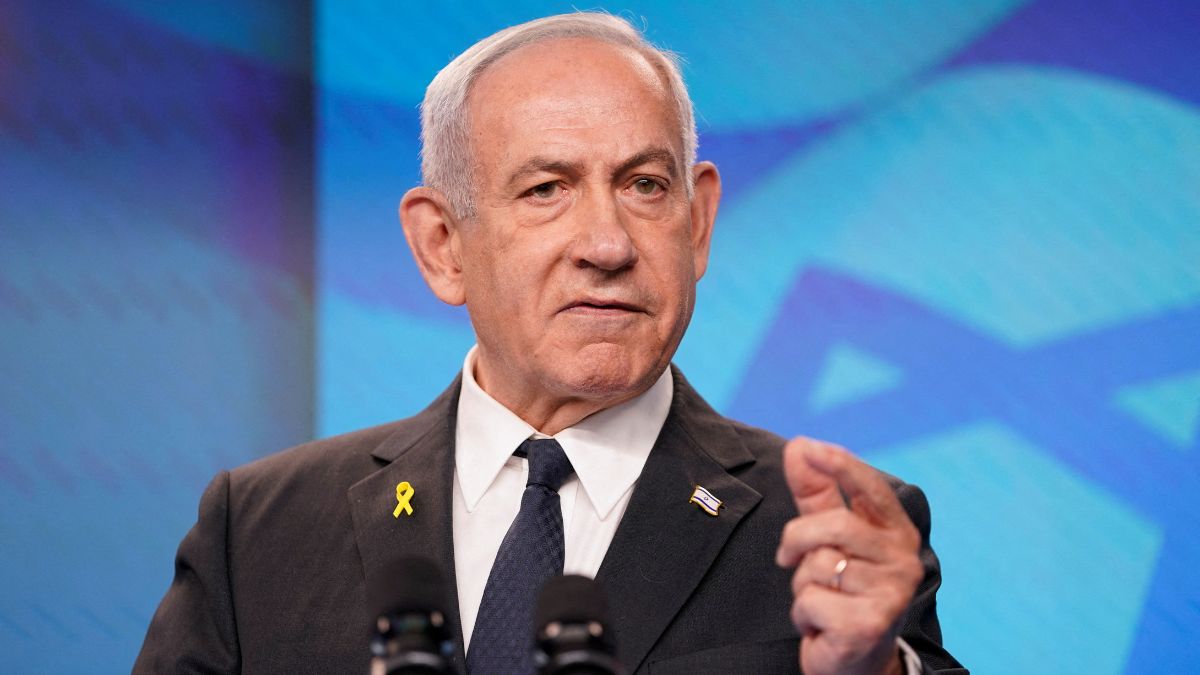A rift within Israeli Prime Minister Benjamin Netanyahu’s far-right coalition is emerging as a key flashpoint in efforts to end the war in Gaza, threatening to derail a United States push to reshape the political landscape of the West Asia.
Under pressure from US President Donald Trump to end the two-year-old conflict, Netanyahu is facing a backlash from his ultra-nationalist allies whose opposition to the US president’s Gaza proposal could force the Israeli leader into early elections.
Netanyahu has publicly embraced Trump’s 20-point plan to end the war, which calls for Gaza’s demilitarisation and excludes Hamas from any future governing role, although it allows its members to remain if they renounce violence and surrender their weapons.
Hamas has responded positively, signalling partial acceptance of Trump’s proposal and stating that it is ready to negotiate the release of hostages while joining a “Palestinian national framework” to determine Gaza’s future.
However, the idea that Hamas could continue to exist, let alone play any part in post-war discussions, has angered Netanyahu’s right-wing coalition partners. “We cannot agree under any circumstances to a scenario in which the terrorist organisation that brought the greatest calamity upon the State of Israel is revived,” said National Security Minister Itamar Ben-Gvir. “We will in no way be partners to that,” he added in a post on X, threatening to withdraw from the government.
If Netanyahu’s far-right ministers believe he has made too many concessions to end the war, his coalition — already the most right-wing government in Israel’s history — could collapse a full year before the next scheduled election, which must be held by October 2026.
But prolonging the war could anger the families of hostages still held by Palestinian militants and further alienate a war-weary Israeli public, as well as strain ties with international allies. Continued fighting could also extinguish hopes of expanding the Abraham Accords, a series of US-backed agreements that normalised relations between Israel and several Arab states.
Expanding those accords remains a key objective for Trump, whose administration has pursued closer regional ties as part of its West Asia strategy. Yet Saudi Arabia and other Muslim nations have made it clear that they will not normalise relations with Israel until the Gaza war ends and a pathway to Palestinian statehood is established.
Trump’s plan and domestic tensions
Trump has urged Israel to halt its bombardment of Gaza so that talks on his proposal can move forward. Under his plan, indirect negotiations between Israel and Hamas began on Monday in Egypt’s Red Sea resort of Sharm el-Sheikh, focusing first on the release of all remaining hostages.
Netanyahu has described the process as beginning with an exchange of Palestinian prisoners for Israeli hostages. Of the 48 hostages believed to remain in Gaza, 20 are thought to be alive. A second phase of the plan would centre on disarming Hamas and demilitarising Gaza.
However, Israeli Finance Minister Bezalel Smotrich warned that pausing attacks would be a “grave mistake”, saying that such a move would erode Israel’s leverage as it works toward freeing the hostages, dismantling Hamas, and ensuring Gaza’s demilitarisation.
Ben-Gvir and Smotrich, whose parties jointly hold 13 of the Knesset’s 120 seats, have long pressed Netanyahu to pursue absolute victory in Gaza, an ambition that critics see as unrealistic. Should they withdraw their support, the collapse of the coalition would almost certainly trigger an early election.
No ceasefire yet, says Israeli government
Israeli government spokesperson Shosh Bedrosian told reporters on Sunday that the military had halted “certain bombings” but insisted there was no ceasefire in place. She said that the Israel Defence Forces would continue operations for “defensive purposes.”
Despite Trump’s appeal for restraint, Israeli strikes over the weekend killed dozens of Palestinians. Netanyahu, meanwhile, has framed Trump’s initiative as a “joint effort” aligned with Israel’s long-term objectives, including the surrender of Hamas and maintaining Israeli security control over Gaza and its borders.
Political future uncertain
Trump’s plan has been criticised for its lack of specifics, offering no clear timeline for Hamas to disarm and only vaguely referencing Palestinian statehood — a point likely to inflame Netanyahu’s far-right partners.
Israeli pollster Mitchell Barak, who worked with Netanyahu in the 1990s, said the government appeared to be approaching its end, though he did not foresee an immediate collapse. He noted that the opposition supports the Trump plan, while Smotrich and Ben-Gvir have limited political options beyond remaining aligned with Netanyahu.
Opposition leader Yair Lapid has offered to support the government temporarily to ensure Trump’s plan proceeds, saying Netanyahu could set a date for elections in exchange. Lapid described his offer as “insurance” against what he called the prime minister’s “extremist and irresponsible partners.”
)